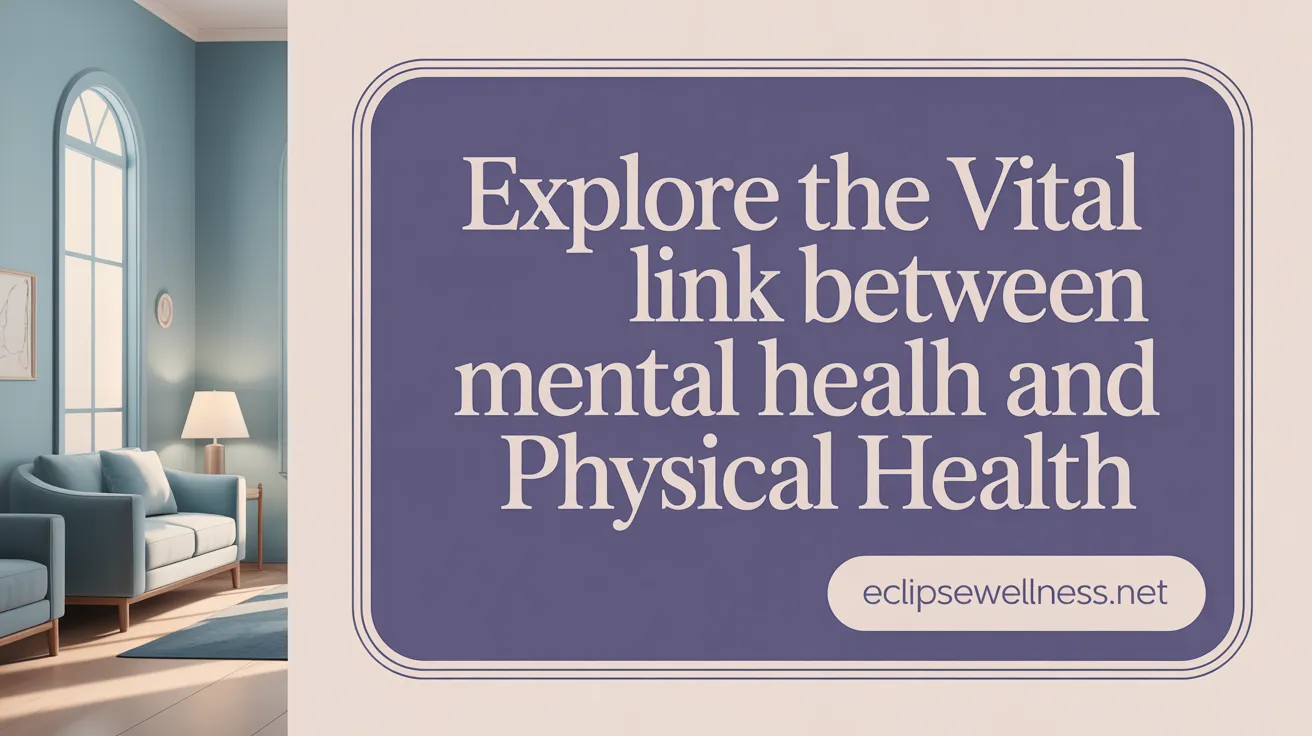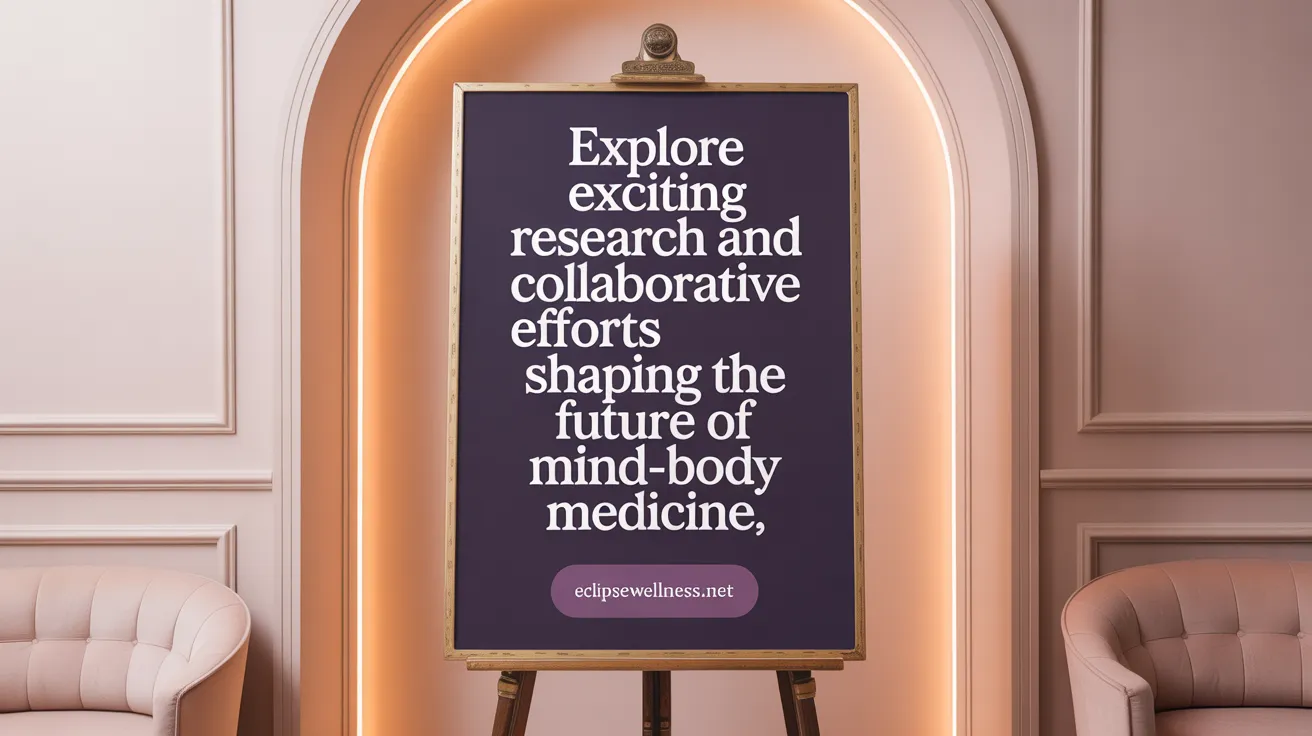The Integral Role of Mind-Body Interaction in Health
The emerging field of integrative and holistic healthcare recognizes the profound relationship between the mind and body, offering pathways to healing that extend beyond traditional medicine. Understanding this connection is pivotal in addressing the root causes of illness and promoting overall well-being by considering mental, emotional, physical, and spiritual health as an interconnected whole.
Foundations of the Mind-Body Connection: Historical and Scientific Perspectives

What are the historical roots and modern scientific understandings of the mind-body connection?
The concept of the mind-body connection dates back to ancient civilizations. Greek philosophers such as Plato and Aristotle first explored how mental and physical aspects of a person influence one another. Similarly, traditional Chinese medicine and Ayurveda emphasize maintaining a balance between mental and physical energies to achieve overall health.
Modern science has provided significant validation for this relationship. Neuroscience and psychoneuroimmunology have shown that emotional and psychological states affect biological processes including immune responses and hormone levels, underscoring a close mind-body interaction.
Recent breakthroughs include the identification of the Somato-Cognitive Action Network (SCAN) through advanced brain imaging techniques. This neural network links areas responsible for movement, cognition, and autonomic bodily functions like heart rate and blood pressure, offering a biological basis for how mind and body coordinate.
Additionally, the biopsychosocial model frames health as a complex interplay between biological, psychological, and social factors, moving beyond treating just symptoms to considering the whole person. Together, historical insights and modern discoveries provide a comprehensive foundation for understanding and enhancing the mind-body connection in health care.
How Mental Health Influences Physical Well-Being

How does mental health affect physical health and contribute to physical illness?
Mental health plays a crucial role in physical well-being. Chronic psychological stress triggers the body's fight-or-flight response, leading to increased secretion of stress hormones like cortisol and adrenaline. Over time, elevated cortisol levels can cause inflammation, suppress immune function, and contribute to conditions such as heart disease, high blood pressure, and digestive disorders.
Physiological effects of stress
Stress impacts the autonomic nervous system and the hypothalamic-pituitary-adrenal (HPA) axis, generating physiological changes like elevated blood sugar, muscle tension, and increased inflammation. These alterations make individuals vulnerable to a range of health problems, including gastrointestinal issues, chronic pain, and immune system dysfunction as detailed in mind-body connection research.
Psychosomatic medicine framework
Psychosomatic medicine integrates psychological and biological perspectives to understand how mental stress affects physical health. It focuses on the interaction among the nervous, endocrine, and immune systems, demonstrating how emotional and behavioral factors can influence disease progression and healing.
Common psychosomatic disorders
Stress-related physical conditions include headaches, irritable bowel syndrome, fibromyalgia, hypertension, and chronic fatigue syndrome. Psychological factors can trigger, worsen, or prolong these illnesses, necessitating treatments that address both mental and physical components, as explained in the Cleveland Clinic's overview of psychosomatic disorders.
Bidirectional influence between mental and physical health
Mental and physical health share a dynamic, reciprocal relationship. While poor mental health can predispose individuals to physical illnesses, chronic physical conditions may also trigger or worsen mental health problems like depression or anxiety. This interconnectedness underscores the importance of holistic approaches that treat the whole person.
| Topic | Description | Examples/Effects |
|---|---|---|
| Mental health impact | Psychological stress influences physical health | Heart disease, immune suppression, digestive issues (MentalHealth.org.uk) |
| Stress physiology | Activation of HPA axis and autonomic nervous system | Cortisol release, inflammation (Calm.com mind-body connection) |
| Psychosomatic medicine | Integrates mental and physical health care | Mind-body therapies, holistic treatment (Psychosomatic Medicine Wikipedia) |
| Psychosomatic disorders | Physical illnesses linked to mental stress | Fibromyalgia, IBS, hypertension (Cleveland Clinic psychosomatic disorders) |
| Bidirectional influence | Mutual influence between mental and physical health | Depression worsening diabetes; chronic illness causing anxiety (Core.ac.uk holistic health) |
Integrative and Holistic Approaches: Healing Beyond Conventional Medicine

What role do integrative and holistic approaches play in healing by addressing mind-body connections?
Integrative medicine bridges conventional medical treatments with complementary therapies such as acupuncture, yoga, meditation, and nutritional counseling. This approach views the individual as a whole—encompassing body, mind, and spirit—and aims to promote healing beyond merely alleviating symptoms (Healing Beyond Medicine, Integrative Medicine and Health at Mayo Clinic).
Holistic health practices emphasize harmony among physical, mental, emotional, and spiritual dimensions. They include therapies like massage, herbal medicine, breathwork, and energy techniques such as Reiki and healing touch. These diverse interventions enable personalized care tailored to the unique needs and life circumstances of each patient (Holistic Healing, mind-body connection.
Mind-body interventions strengthen the communication between mental states and physiological health. Techniques including mindfulness meditation, microcurrent neurofeedback, progressive muscle relaxation, and tai chi help regulate emotional responses, support brain neuroplasticity, and reduce stress-related physiological imbalances (Understanding the Mind-Body Connection: A Comprehensive Guide, body-mind integration).
Evidence-based integrative therapies are increasingly integrated into mainstream healthcare to enhance resilience, reduce anxiety and depression, manage chronic pain, and improve immune function. These approaches complement traditional medicine, offering safer, patient-centered options that optimize natural healing mechanisms (Integrative Medicine and Health at Mayo Clinic, psychoneuroimmunology).
By respecting individual differences and incorporating scientifically supported modalities, integrative and holistic approaches offer comprehensive strategies to nurture overall well-being, emphasizing prevention, personalized care, and mind-body harmony (mind-body connection, biopsychosocial model.
Practical Techniques to Strengthen the Mind-Body Connection

What practical methods help individuals strengthen their mind-body connection for better health?
Several effective techniques can foster a stronger mind-body connection, promoting overall health and resilience.
Mindfulness and Meditation encourage a present-moment awareness that helps regulate emotions and reduce stress. Mindfulness practices like body scan meditation deepen self-awareness and emotional balance.
Breathwork and Diaphragmatic Breathing calm the nervous system by activating the parasympathetic response. Proper diaphragmatic breathing is essential for reducing stress and improving conditions such as sleep apnea (source).
Physical Activities such as yoga, tai chi, and qigong blend mindful movement with breath control and meditation. These practices enhance physical flexibility, mental clarity, and emotional harmony.
Progressive Muscle Relaxation involves systematically tensing and relaxing muscle groups to identify and release tension, fostering relaxation and improved physical comfort (source.
Visualization and Guided Imagery use positive mental images to evoke relaxation and reduce anxiety, helping prepare the nervous system to handle stress effectively (source.
Biofeedback and Neurofeedback technologies provide real-time data on physiological processes such as heart rate or brain activity. Microcurrent neurofeedback supports brain reorganization and neuroplasticity, aiding mental health and neurological improvements.
Integrating these methods regularly can lower stress hormones like cortisol, enhance sleep quality, boost immune function, and improve emotional resilience, contributing to holistic well-being (source.
The Importance of Personalized and Preventive Care in Mind-Body Healing
Why is personalized and preventive care essential in mind-body healing, and how does it enhance outcomes?
Personalized care respects the unique genetic makeup, lifestyle choices, and health conditions of each individual, allowing treatments to focus on underlying causes rather than simply alleviating symptoms. Blood analysis and biomarker assessments serve as valuable tools to detect nutrient deficiencies and hidden imbalances, guiding precise interventions that support both mental and physical health.
Lifestyle factors such as balanced nutrition, regular physical activity, restorative sleep, and effective stress management are fundamental to strengthening the mind-body connection. These elements foster resilience and promote holistic wellness when addressed in care plans.
Integral to personalized healing is the patient-practitioner partnership. This collaborative approach encourages shared decision-making and a holistic perspective where emotional, mental, and physical aspects are interconnected within treatment strategies.
Philanthropic efforts significantly expand the scope of integrative care by funding critical research, improving healthcare infrastructure, and supporting mental health programs. This investment not only enhances the quality of care but also broadens its availability to diverse communities, facilitating earlier interventions and better health outcomes worldwide.
Future Directions: Advancing Mind-Body Medicine Through Research and Collaboration

What Are the Future Research Directions and Opportunities for Advancing Mind-Body Medicine?
Mind-body medicine is poised for significant growth through the exploration of neuroplasticity and its therapeutic potential. Research increasingly focuses on how targeted mind-body interventions can promote brain reorganization and resilience. Digital health tools, such as biofeedback devices and smartphone apps, empower users to monitor and enhance their mind-body connection outside clinical settings, supporting personalized self-care.
To ensure reliability and widespread acceptance, there is a strong push toward standardized research methodologies. This includes mechanistic studies employing biomarkers and rigorously designed randomized controlled trials. Such approaches will help clarify the biological effects and optimize the use of mind-body techniques.
Transdisciplinary collaboration is essential for advancing this field. Neuroscientists, psychologists, clinical practitioners, and integrative medicine experts must work collectively to create holistic models that effectively blend mental and physical health care.
Efforts to integrate mind-body approaches into mainstream healthcare offer promising avenues to improve prevention strategies and tailor treatments to individual needs. However, challenges such as therapy variability, safety assessments, and equitable access—particularly in underserved populations—must be addressed to fully realize these benefits.
Continued funding, research, and policy support will be crucial to overcoming barriers, enhancing education, and expanding evidence-based mind-body medicine within healthcare systems worldwide.
Embracing a Holistic Future of Healing
Recognizing and harnessing the profound interplay between mind and body marks a transformative shift in healthcare, one that transcends conventional treatments to embrace integrative and personalized approaches. By blending ancient wisdom with modern science and employing an array of holistic therapies, individuals can experience healing that addresses not only symptoms but the whole person. Continued research, collaboration, and equitable access will further unlock the potential of mind-body medicine, fostering resilience, well-being, and a deeper connection to health that empowers patients on their journey to optimal vitality.
